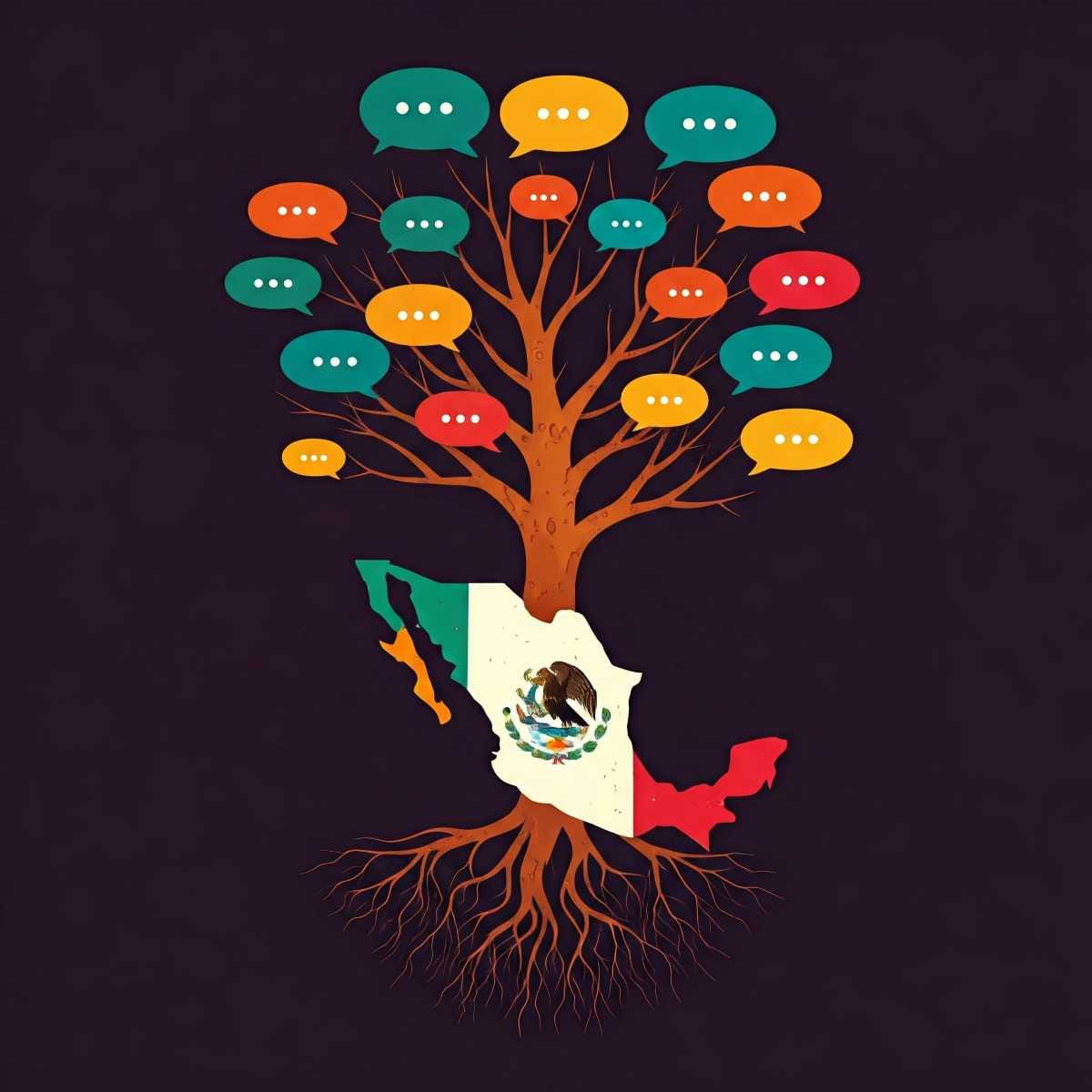Constitutional Reform Reshapes Business in Mexico's Indigenous Territories
Mexico's constitution recognizes indigenous and Afro-Mexican rights, but implementation, especially regarding prior consultation, has lagged. A recent reform to Article 2 strengthens these rights, mandating free, prior, informed consultation on measures impacting their lives and environment.

In the expansive mosaic of Mexico’s multicultural identity, indigenous and Afro-Mexican communities have long been heralded as integral to the nation’s heritage. Article 2 of the Political Constitution of the United Mexican States (CPEUM) boldly asserts this, acknowledging their rights to self-determination, autonomy, and social inclusion. Yet, for all the constitutional guarantees, these communities remain ensnared in systemic marginalization, struggling to assert their rights and carve a sustainable future within a society that often relegates them to the periphery.
As the World Bank (2023) reminds us, indigenous peoples globally—despite representing only 6% of the world’s population—shoulder 19% of the world’s extreme poverty. Their struggles for recognition, access to resources, and participation in governance are not unique to Mexico but resonate with chilling familiarity. Here, the situation reflects the global trend: entrenched disparities persist despite decades of legislative promises and public discourse.
Who Are Mexico’s Indigenous and Afro-Mexican Communities?
The 2020 National Population and Housing Census by INEGI reveals that 23.2 million Mexicans identify as indigenous, constituting 19.4% of the population. These individuals trace their lineage back four millennia, their presence etched into every corner of the Mexican Republic. Oaxaca, Chiapas, Yucatán, and Guerrero are among the states with the densest indigenous populations, where their rich cultural heritage blends seamlessly with the natural biodiversity of the land.
Similarly, Mexico’s Afro-descendant population, numbering 2.6 million, carries a history forged through the forced migrations of the transatlantic slave trade. Concentrated in Guerrero, Oaxaca, and Veracruz, among other states, Afro-Mexicans contribute a vibrant yet often overlooked thread to Mexico’s cultural fabric. Despite their deep roots, both communities face profound challenges in asserting their constitutional rights and achieving equitable treatment in the socio-political landscape.
Indigenous territories, as documented by the National Institute of Indigenous Peoples (INPI), are reservoirs of Mexico’s natural wealth. Half of the nation’s hydrological headwaters, regions of high rainfall, and 23.3% of the country’s water capture zones are found within these lands. Moreover, these areas encompass 22 million hectares of social property, replete with forests, minerals, and other natural resources.
Yet, this abundance stands in stark contrast to the lived realities of these communities. Poverty and marginalization grip their populations, exacerbated by limited access to education, healthcare, and economic opportunities. The wealth beneath their feet rarely translates into tangible benefits, and their exclusion from decision-making processes compounds the issue.
Central to the plight of Mexico’s indigenous and Afro-Mexican communities is the issue of prior consultation. Enshrined in international conventions like the International Labour Organization’s Convention 169, the right to free, prior, and informed consent is a cornerstone of indigenous autonomy. It ensures that communities are consulted about projects affecting their lands, resources, and way of life.
However, in Mexico, this right is often more theoretical than practical. Legal ambiguities, political resistance, and economic pressures converge to stymie its implementation. Prior consultations frequently devolve into pro forma exercises, where communities are informed of decisions already made rather than engaged in meaningful dialogue. This tokenism erodes trust and fuels conflict, leaving indigenous and Afro-Mexican populations feeling alienated and powerless.
Despite the constitutional recognition of their rights, the legislative framework surrounding indigenous and Afro-Mexican communities remains fragmented. The absence of comprehensive laws to enforce prior consultation reflects a broader reluctance to confront the structural inequities that sustain their marginalization. For meaningful progress, Mexico must undertake a multifaceted approach:
- Strengthen Legal Frameworks: Establish robust mechanisms for prior consultation, ensuring that it is both binding and enforceable. Legislation must clearly define the scope, process, and consequences of consultations to prevent ambiguity and abuse.
- Invest in Capacity Building: Equip indigenous and Afro-Mexican communities with the resources and knowledge to advocate for their rights effectively. This includes legal literacy programs and platforms for collective organization.
- Foster Inclusive Development: Channel public investments into indigenous territories, prioritizing education, healthcare, and infrastructure. Development initiatives must align with the cultural and environmental values of these communities.
- Promote Political Representation: Ensure that indigenous and Afro-Mexican voices are heard in legislative and policy-making processes. This includes reserved seats in Congress and local governments.
The recognition of indigenous and Afro-Mexican communities in Mexico’s Constitution is a testament to their enduring legacy and vital contributions. However, recognition without action is an empty gesture. To honor the spirit of Article 2, Mexico must move beyond rhetoric and commit to systemic reforms that address the historical injustices faced by these communities.
Indigenous and Afro-Mexican Rights in Mexico
Mexico’s legal framework draws from a mosaic of sources to protect indigenous and Afro-Mexican rights. Central among these are the Mexican Constitution (CPEUM), Convention 169 of the International Labor Organization (ILO), the United Nations Declaration on the Rights of Indigenous Peoples, and the American Declaration on the Rights of Indigenous Peoples. Together, these instruments establish a vision for free determination, encompassing the right of these communities to define their political status and pursue economic, social, and cultural development.
At the heart of these protections lies Article 2 of the CPEUM, which recognizes the right to consultation. This provision ensures that indigenous peoples are engaged in decisions regarding federal, state, and municipal development plans. Yet, its implementation has been uneven. Legislative gaps and limited regulatory frameworks have left many communities vulnerable to exploitation and marginalization. As of now, only three states—San Luis Potosí, Durango, and Oaxaca—have enacted regulatory legislation to support this right, underscoring a glaring disparity in nationwide protections.
In 2018, the Law of the National Institute of Indigenous Peoples was enacted, establishing a technical body to oversee consultations related to legislative and administrative measures. However, the absence of a comprehensive federal law governing prior, free, and informed consultation remained a critical oversight.
The tide began to turn on June 10, 2020, when the Second Chamber of the Supreme Court of Justice of the Nation (SCJN) mandated the Federal Congress to enact such a law. The court set an ambitious deadline of August 31, 2021, and outlined criteria to guide legislative efforts. This decision was a direct response to decades of legislative and administrative measures that had adversely impacted indigenous and Afro-Mexican communities, often infringing on their rights to land, resources, and cultural preservation.
Despite these advances, progress was slow. Initiatives presented during the LXIV and LXV Legislatures to guarantee the right to consultation remained stalled, caught in the labyrinth of political negotiation and bureaucratic inertia. However, a breakthrough came on February 5, 2024, when the Federal Executive presented a landmark initiative to the Chamber of Deputies. This proposal sought to reform Article 2 of the CPEUM, embedding the right to free, prior, informed, culturally appropriate, and good-faith consultation into the Constitution itself. By September 30, 2024, both Chambers approved the reform, marking a watershed moment in the fight for indigenous and Afro-Mexican rights.
Key Provisions of the Reform
The 2024 reform to Article 2 introduced several transformative elements:
- Consultation on Significant Impacts: Indigenous communities must be consulted on any legislative or administrative measures that could significantly affect their lives or environment. This aligns with the principles of ILO Convention 169, ensuring that such consultations are not merely perfunctory but aim to secure consent or agreement.
- Equitable Benefits: When individuals or entities profit from administrative measures impacting indigenous communities, those communities are entitled to a fair and equitable share of the benefits. This provision acknowledges the historical exploitation of indigenous resources and seeks to redress economic imbalances.
- Cost Responsibility: Beneficiaries of administrative measures subject to consultation are required to bear the associated costs. This shifts the financial burden away from marginalized communities and onto those who stand to gain.
Despite these legislative advances, indigenous and Afro-Mexican peoples remain among the most marginalized groups in Mexico. Poverty, social inequality, and systemic discrimination continue to plague these communities, exacerbating their vulnerability. While the Constitution and international instruments recognize their rights both individually and collectively, the absence of comprehensive regulatory frameworks often renders these rights aspirational rather than actionable.
For instance, social programs, mining and infrastructure projects, and natural resource exploitation frequently proceed without meaningful consultation. These activities can devastate local environments, disrupt cultural practices, and displace communities, perpetuating cycles of inequality and marginalization. The need for sustainable development that respects the consent of indigenous peoples is more urgent than ever.
The 2024 reform is a significant step, but it is not the final destination. Legislative actions must now focus on creating a robust federal law to regulate the right to consultation, guided by the SCJN’s criteria. This law must harmonize with existing regulations to address the broader implications of consultation rights on natural resource management, social programs, and infrastructure development.
Moreover, public policy must evolve to ensure that the rights of indigenous and Afro-Mexican communities are not just recognized but actively protected and promoted. This includes addressing gaps in education, healthcare, and economic opportunities while preserving cultural heritage and environmental sustainability.
In-text Citation: (Galicia Flores, 2024, pp. 36-39)




